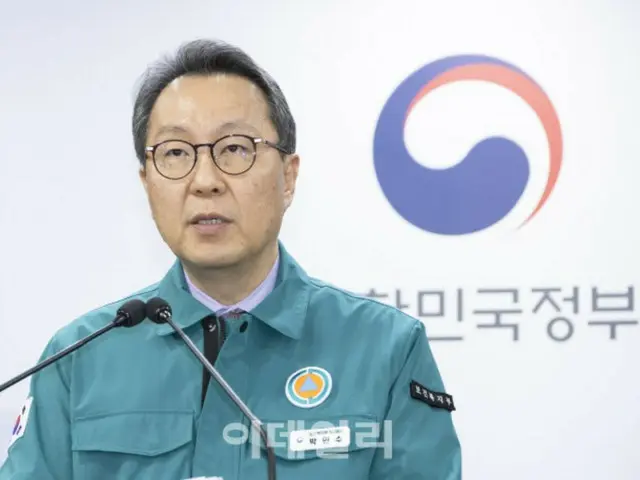In response, the government emphasized that the medical system can continue to operate normally even if the situation lasts for a long time. Park Min-soo, deputy director of the Central Accident Collection Headquarters (second vice-minister of the Ministry of Health and Welfare), held a regular meeting on the 21st.
``Yesterday and today, there was confusion in the field due to the mass withdrawal of specialized doctors, including the cancellation of scheduled surgeries, but we will work to quickly stabilize the situation through government measures.''
did. The government did not specify a specific period because it feared that if it specifies a possible schedule, it could give the medical community the wrong impression about the strike period.
As of 10 p.m. on the 20th, an inspection of 100 major training hospitals revealed that 8,816 specialty physicians, or approximately 71.2% of their specialty physicians, had submitted their resignations. death
However, it has not been accepted. A total of 7,813 people, or approximately 63.1% of affiliated physicians, left their workplaces. The government said that of the 6,112 major doctors who were confirmed to have left their workplaces during on-site inspections, they have already returned to work.
Orders to begin work were issued to 5,397 specialized doctors, excluding 715 who received orders to begin work. The Central Accident Collection Headquarters emphasized that the prosecution's current charges against them are not true. Kim Gu
Gill, head of the emergency response team, said, ``We have given an order to start work and are sending it by mail and text message,'' and ``Once these procedures are completed, we will consider whether or not to prosecute and take administrative action.''
. The government plans to firmly maintain an emergency treatment response system to avoid a shortage of specialized doctors, and to ensure that there are no problems with serious or emergency treatment.
Vice Minister Park said, ``External personnel such as public health doctors will be used to support medical institutions and specialized subjects that lack personnel when needed.''
``Through this, local hospitals will be able to intensively treat patients with moderate or lower symptoms who are scattered throughout the region, and public medical institutions will be able to respond to additional medical demand through extended weekday care and weekend care.''
We will do everything in our power to provide policy support so that we do not run out of medical personnel to protect patients."
2024/02/21 12:03 KST
Copyrights(C) Edaily wowkorea.jp 85

